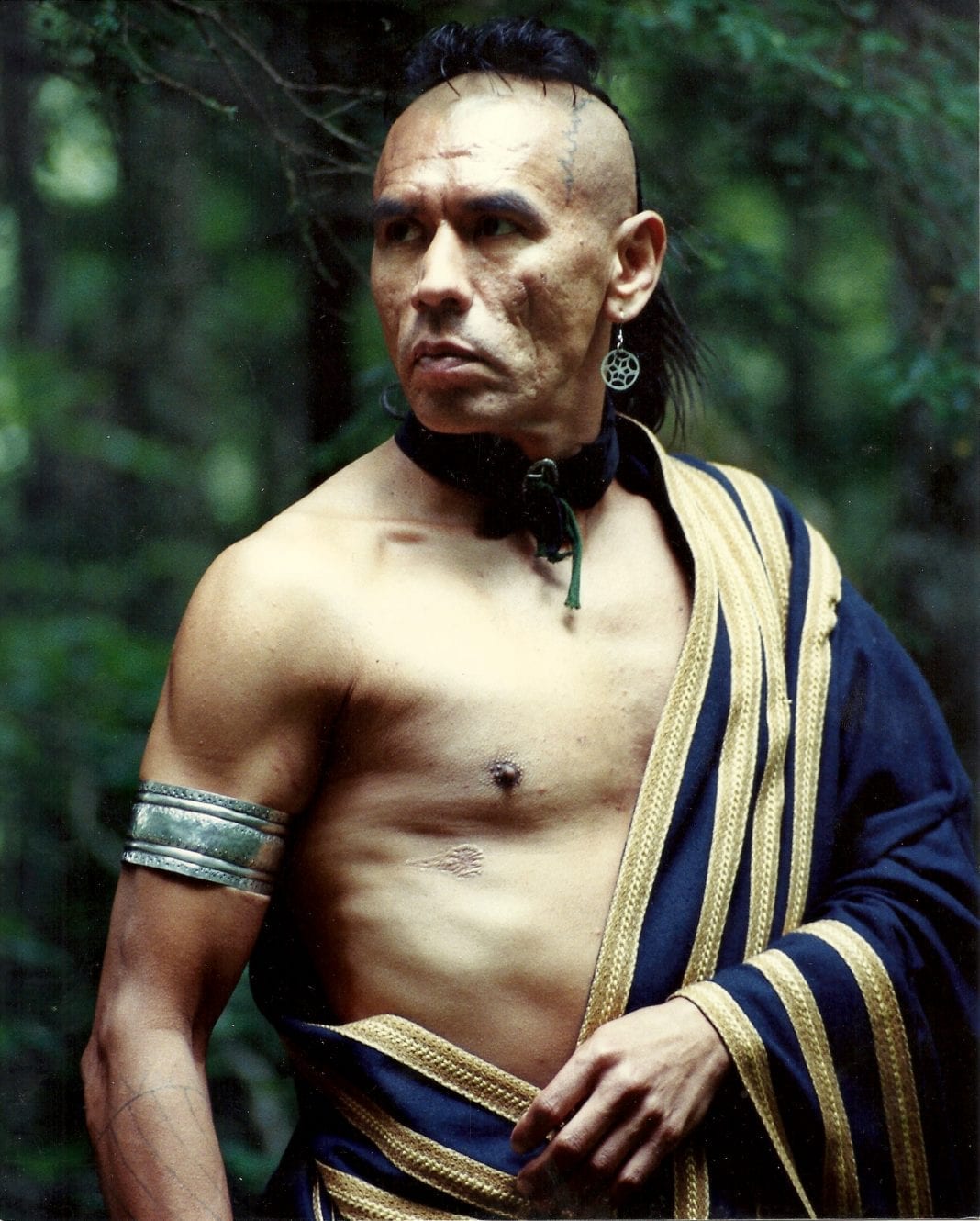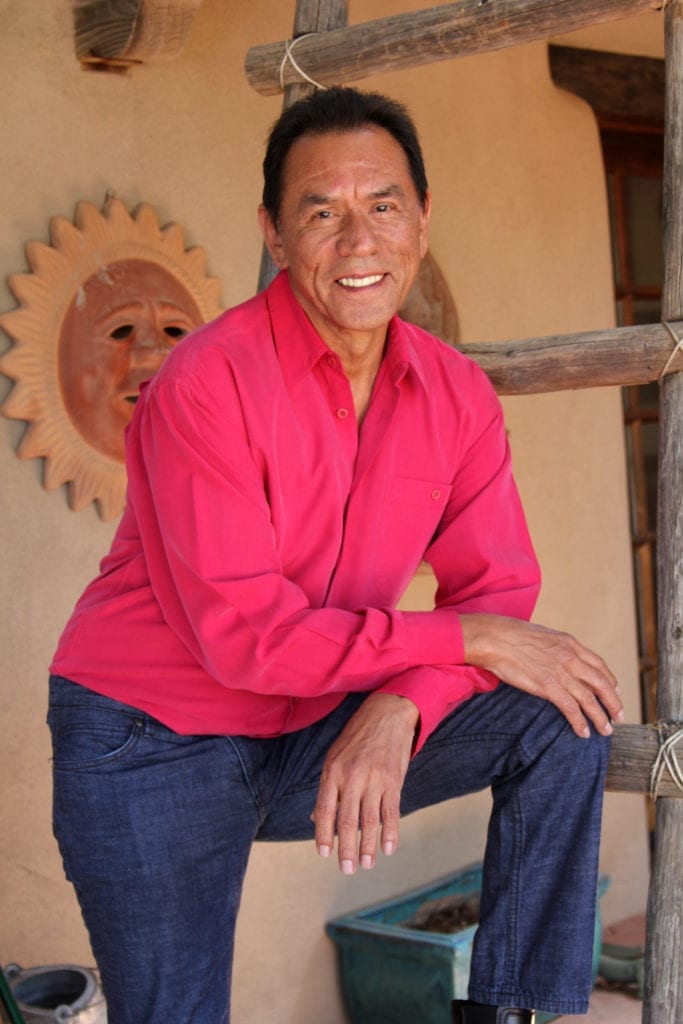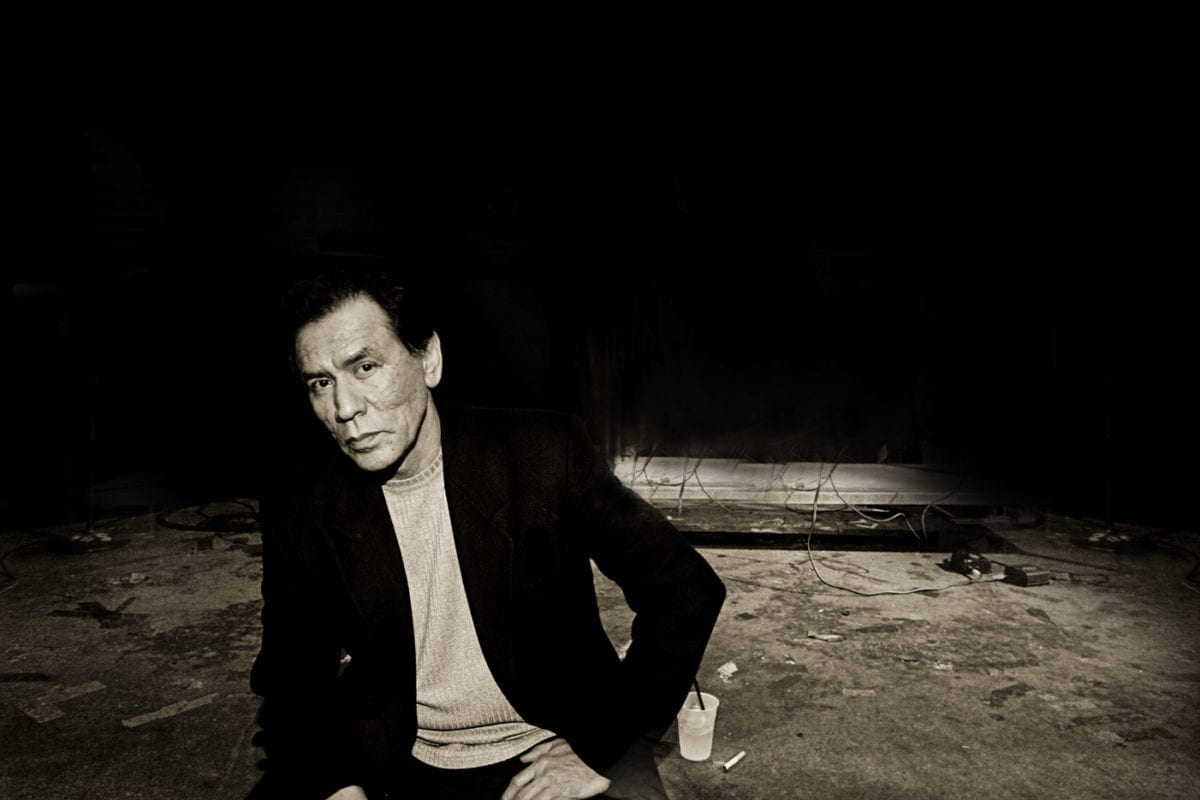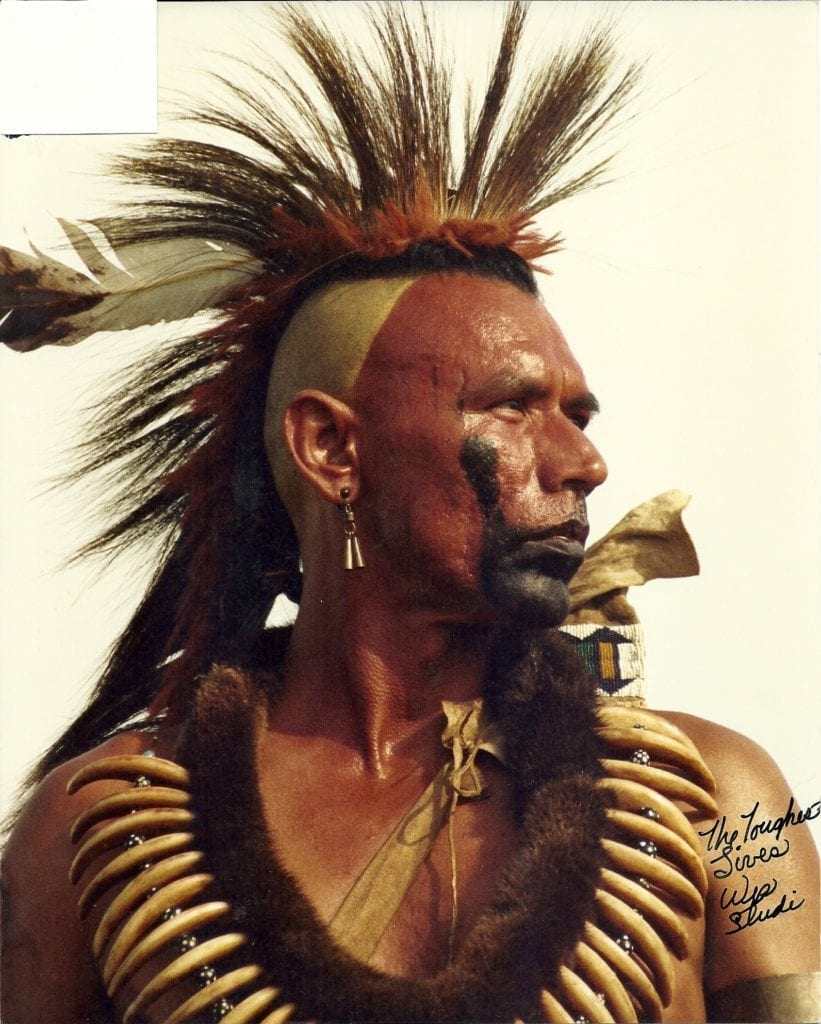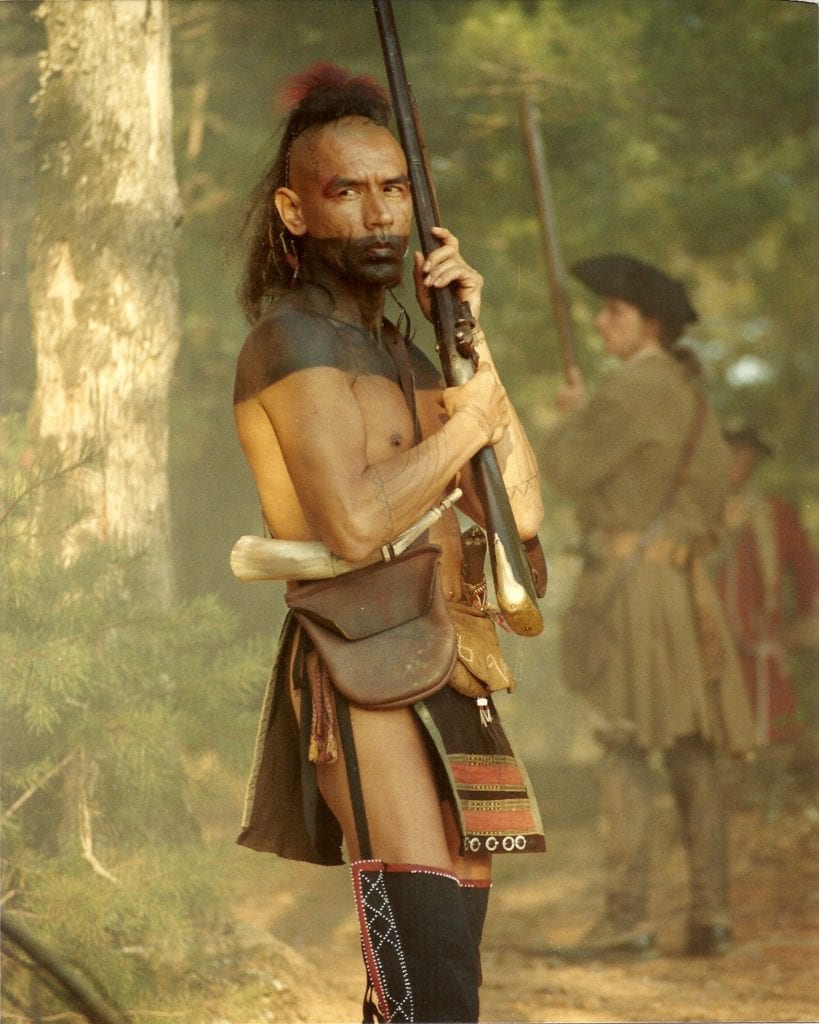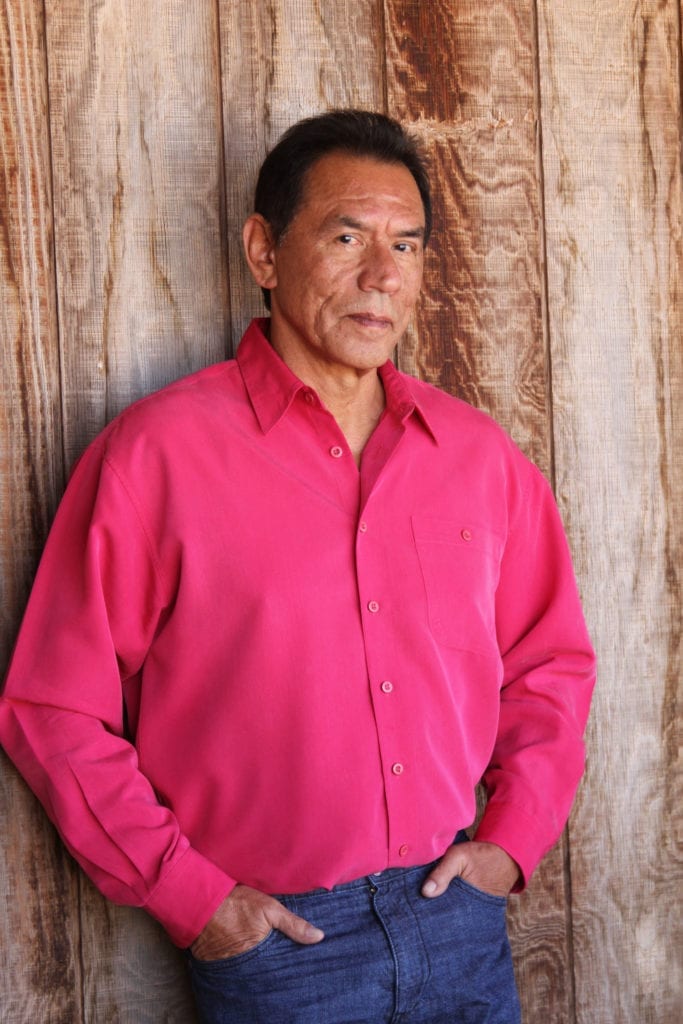From Nofire to Nowhere, Oklahoma-born Wes Studi has a career that is anything but inconsequential.
Studi, who received a Governors Award in October for lifetime achievement in film, is the first Native American actor to win an Academy Award. For more than three decades, he has portrayed strong, complex characters and helped break stereotypes common in the days when anglos played Indians.
“I have a fondness for this work that keeps me in it,” he says. “I have some stamina to stay in this business for so long.”
Studi’s life today – on his ranch in Santa Fe, New Mexico – is far different from his time at the Chilocco Indian School in Newkirk, where he graduated with a vocation in dry cleaning and wore a flattop haircut with fenders.
Born in Nofire Hollow, southeast of Tahlequah and Park Hill, Studi can’t quite grasp how quickly time has passed since his breakout role as a Pawnee warrior in Dances With Wolves, which won the Best Picture Oscar in 1990.
“I’m still wondering where those years went,” says Studi, who keeps fit with “a fairly active lifestyle. I don’t sit down a lot. I just check out my arms from time to time. When they get flabby, I go out and do some upper body work and some aerobic exercise.”
Studi’s acting career began in Tulsa community theater. His first professional gig was in a dramatic version of John Neihardt’s Black Elk Speaks with David Carradine and Will Sampson at the American Indian Theatre Company in 1984. The book is taught widely in English classes.
“Its central message holds true to this day; it’s universally true,” Studi says. “We are all related and all in this together and we’re getting a damned good reminder of that today with this coronavirus pandemic.”
Studi’s current project, Nowhere, Arizona, was supposed to have started filming in April, but restrictions involving COVID-19 suspended production. Studi enacts Chuck Begay, a recently released prisoner.
“It’s a gritty film about life and the search for redemption,” he says. “It’s not a feel-good movie.”
(For trivia buffs, there really is/was a Nowhere, a ghost town in western Arizona.)
Studi, whose first language is Cherokee, didn’t learn English until he was 5. He is an advocate for his mother tongue and other indigenous languages. In the 1970s, Studi worked for the Cherokee Nation to begin the bilingual Cherokee Phoenix. For 15 years, he has worked with the Indigenous Language Institute in Santa Fe.
“Cherokee is a great part of my identity,” Studi says. “It’s important for it to continue as a language. Cherokees are constantly updating our language to fit our world today and things that have just been invented. If a language isn’t dynamic, it’s destined to lose out in the world – a death certificate so to speak.
“I have interest in where words come from, their roots and what they really mean – how words began on a human level and how we began communicating. It’s fascinating.”
Studi says he returns to Oklahoma several times a year; his mother, who turned 91 last month, lives in Collinsville and he has extended family throughout the state.
“I enjoy visiting Oklahoma when I can,” he says.
Studi joined the Oklahoma National Guard as a 17-year-old and volunteered for active duty in the Vietnam War for a year in the late 1960s. After the war, he joined the American Indian Movement and participated in demonstrations for Native rights and sovereignty in the early 1970s.
Studi reminds that Buffy Sainte-Marie, a Canadian songwriter, was the first indigenous person to win an Academy Award – for Best Original Song, “Up Where We Belong,” from 1982’s An Officer and a Gentleman.
Studi says his lifetime achievement Oscar “is a milestone in that it’s the first one awarded for the field of acting. Others have been nominated but not awarded. It means that my peers and audiences have come to appreciate my work after 30 years.
“Plus, the Oscar is a great thing to have in your house. It’s the corner of my living room on a nice stand.”
Notable roles
Following are some of the characters Wes Studi has played.
Pawnee warrior, Dances With Wolves, 1990
Magua, The Last of the Mohicans, 1992
Geronimo, Geronimo: An American Legend, 1993
Sammy Casals, Heat, 1995
Terry Leonard, Soundman, 1998
Black Kettle, Into the West, 2005
Eytukan, Avatar, 2009
Sam Franklin, The Only Good Indian, 2009
Cochise, A Million Ways to Die in the West, 2014
Chief Yellow Hawk, Hostiles, 2017
Captain Mica, A Dog’s Way Home, 2019






















